Tin cans are great for storing food and drinks for several reasons. They are stronger than cartons or plastic and less likely to break like glass, making them ideal for transportation and preventing leaks. Plus, they don’t need extra packaging. Metal cans without resealable closures provide excellent protection against light, water, and air, ensuring the contents stay fresh and safe. Overall, tin cans are durable, leak-proof, and offer top-notch protection for your food and drinks.
Since tins are nonrenewable natural resources (they can’t be replaced as quickly as they’re used), they’re limited in supply, and carbon emissions contribute to climate change and environmental issues, recycling tin cans and boxes has become crucial. But can tin be recycled? how does the recycling process work? Let’s find out the answers to these questions.
What Types of Metal Cans Are Recyclable?
All metal cans are recyclable, but examples include:
- Beverage cans, like soda and beer, including the tabs
- Canned goods
- Aerosol cans
- Coffee cans
- Tea Tins
- Cookie Tins
- Popcorn Tins
- Spice Tins
- Mint Tins
- Candle Tins
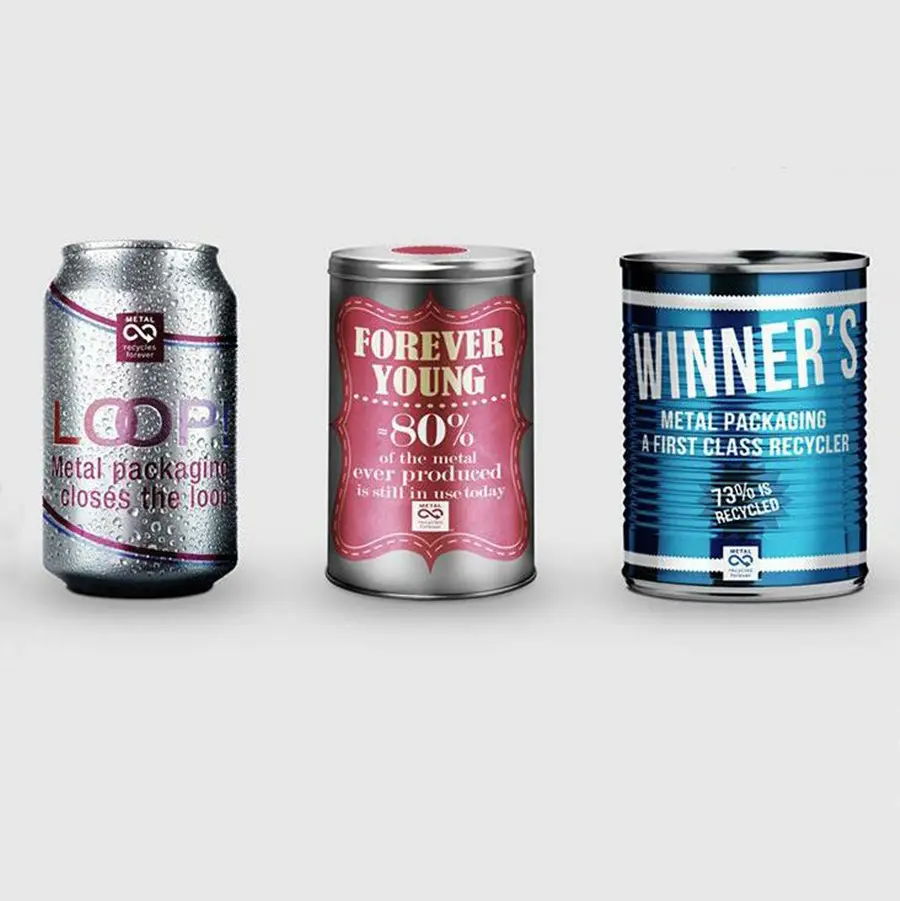
Are Tin Cans Recyclable?
Tin cans are made of tinplate, which is a combination of steel or iron with a layer of tin. All tin cans are recyclable, regardless of whether they’re used for canned food, soda, or aerosols. Metal cans, including aluminum and steel, can be recycled over and over again without losing their quality.
In Europe, an impressive 85.5% of steel packaging and 73% of aluminum beverage cans are recycled, making metal the most recycled packaging material in the region. This demonstrates the commitment to recycling and the significant impact it has on reducing waste.

Are Cookie Tins Recyclable?
Cookie tins are made of tinplate, this material is completely recyclable and can be reused or recycled over and over again without any issues.
You can recycle empty cookie tins and simply put them in your curbside recycling bin, and they will be collected for recycling.
Cookie tins have a shiny and glossy interior because of the tin layer, which not only looks nice for brand packaging but also helps keep the air out. They are sturdy and won’t easily get crushed, which means they protect the cookies inside and keep them fresh and intact until you’re ready to enjoy them.
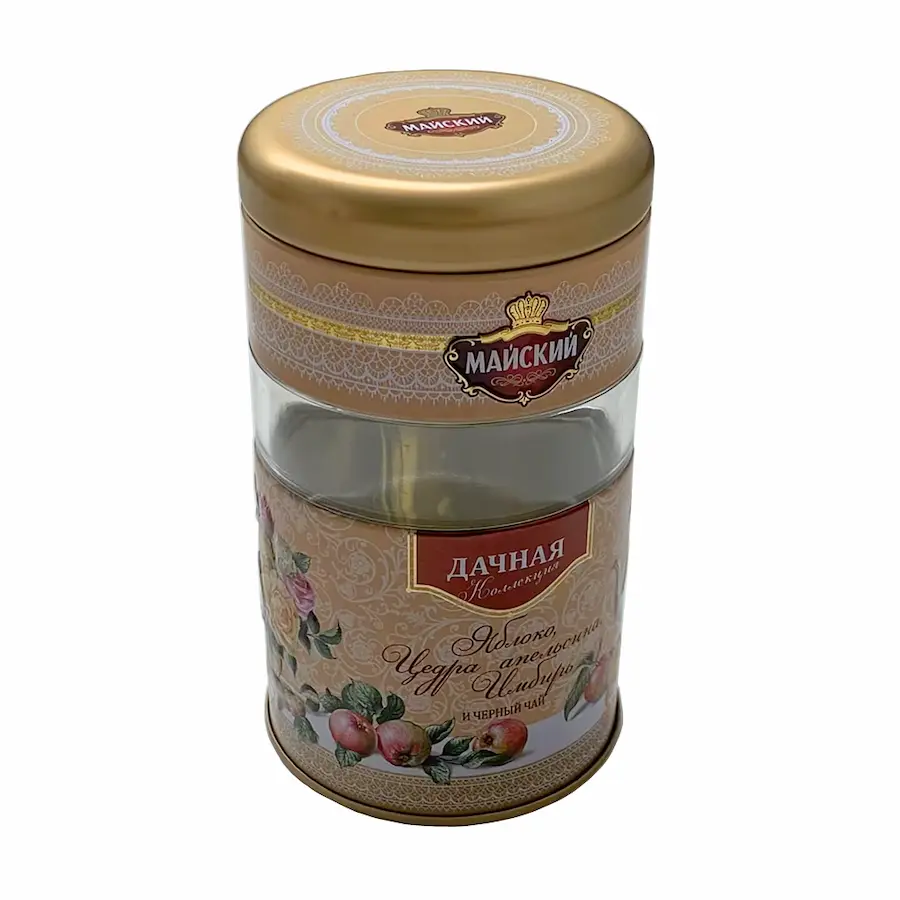
Are Tea Tins Recyclable?
Tea tins are made of steel, which means they can be recycled and given new life as other metal products. Recycling tea tins is a great way to reduce waste and contribute to sustainability.
It’s good to know that tin manufacturers now incorporate recycling symbols on tea tins. These symbols provide valuable information about the type of metal used in the tin and how it can be recycled. This makes it easier for you to understand how to recycle your tea tins properly

Are Coffee Cans Recyclable?
Coffee cans are easily recyclable and can be recycled over and over again without losing their quality or purity. This makes them a great choice for things that can be reused, which helps reduce the need for new resources and energy during production.
Coffee cans are usually made of metal, like aluminum or tinplate. These materials are preferred because they have good properties and are environmentally friendly when recycled. They are lightweight, strong, and can be easily customized with printed designs.
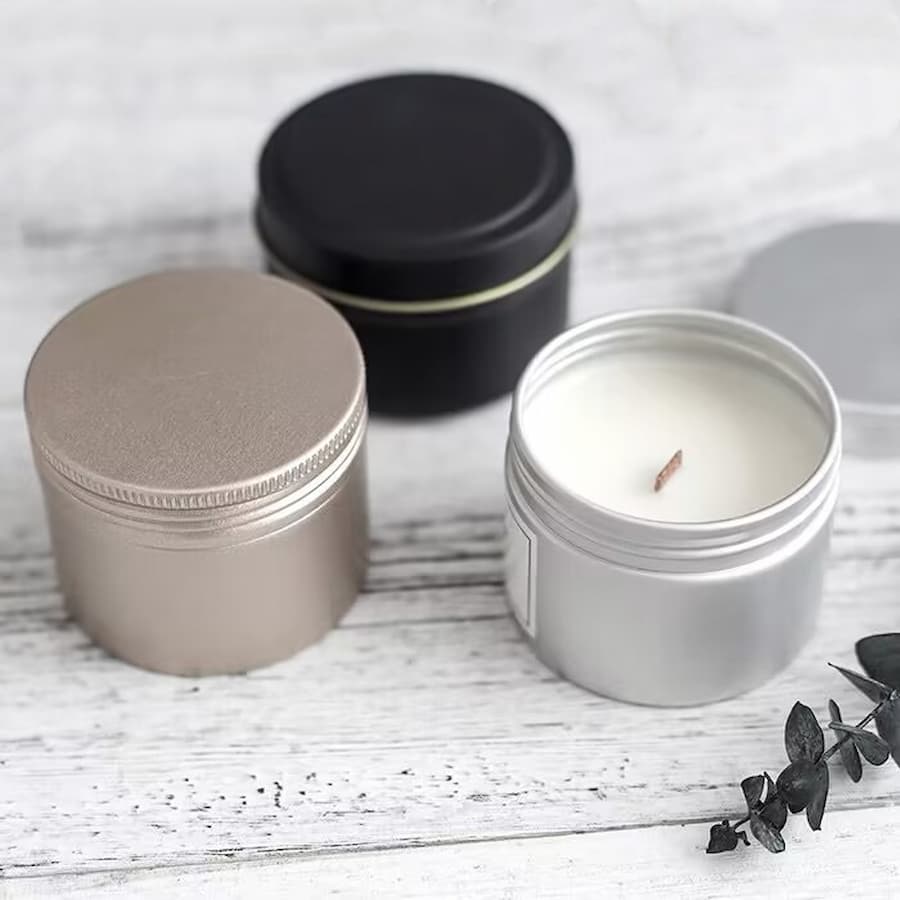
Are Candle Tins Recyclable?
You can recycle candle tins since they are made of tinplate. Before recycling, make sure to remove the wick and any leftover wax. You can do this by using a spoon to scoop out the wax or by melting or freezing it to make removal easier. Once the candle jar is completely clean, you can simply put it in the recycling bin.
Another option is to reuse old candle jars instead of throwing them away. This helps us reduce our negative impact on the environment.
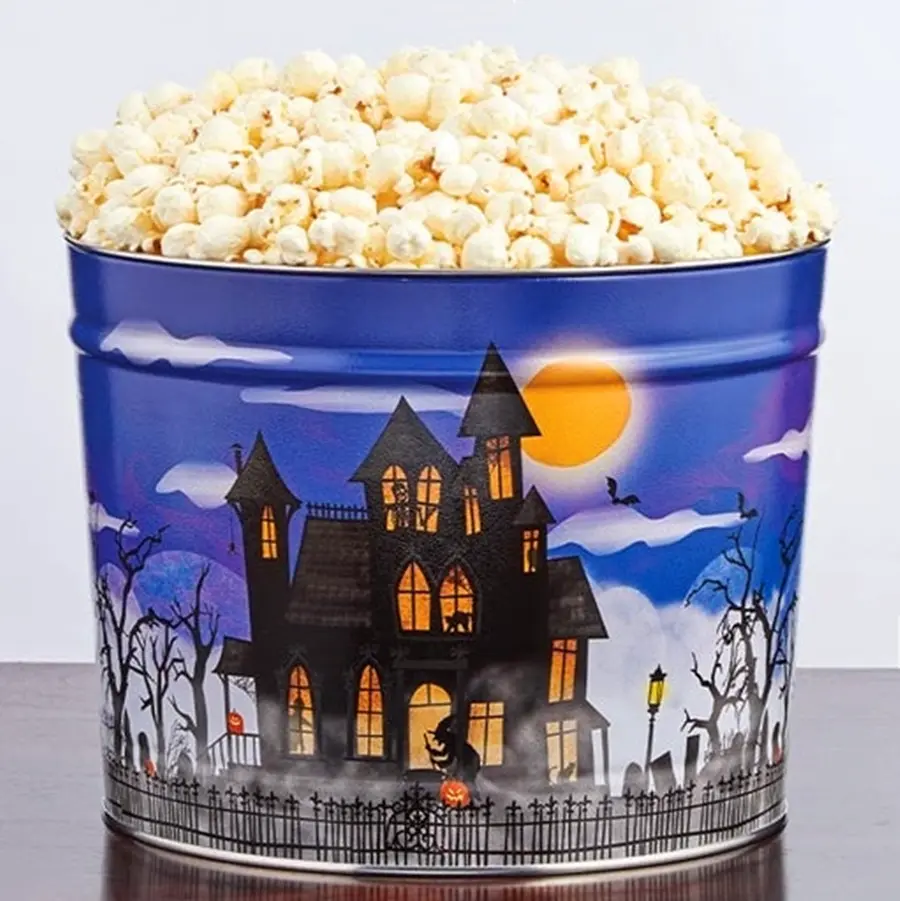
Are Popcorn Tins recyclable?
Popcorn tins can certainly be recycled, and should, as it has indirect but incredible effects on the environment. Nowadays, many popcorn brands use tins for packaging. These tins are typically made of steel or a combination of steel and tin. Tin is recyclable, and manufacturers can melt it down to produce the same grade of tin as before.
If your recycling center accepts popcorn tins, there are a few steps to prepare them for recycling. First, make sure they don’t have any plastic linings. Additionally, remove any traces of food, such as oil, popcorn pieces, or sugar. Clean the tin thoroughly, and then take it to your recycling center.
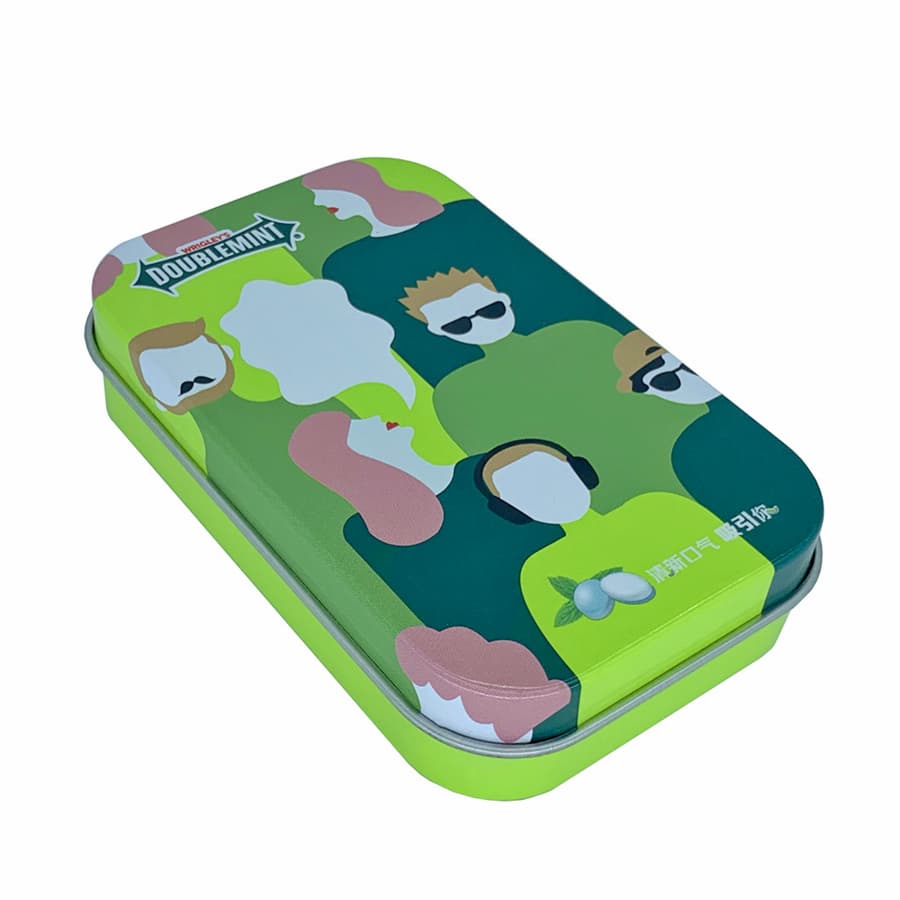
Are Mint Tins Recyclable?
Mint tins are among the easiest boxes to recycle and reuse. Many people choose to repurpose empty mint tins for storing small items or collectibles. They’re also handy for carrying essential medicines or jewelry while traveling because they are portable and provide a safe container to prevent loss.
Mint tins are made of steel, which can take over a hundred years to decompose naturally. Therefore, the best options for these tins are to either recycle them or find new uses for them through reuse. By recycling or reusing mint tins, we can contribute to reducing waste and promoting sustainability.

Are Spice Tins Recyclable?
Spice tins can be recycled. To ensure the spice tins are ready for recycling, carefully detach any plastic parts, such as lids or inserts, from the tin. Once the plastic components are removed, you can recycle the metal tin with other metal recyclables. Properly separating the plastic from the metal ensures that both materials can be recycled appropriately, minimizing waste and promoting eco-friendly practices.
Benefits of Recycling Tin
When we recycle tin cans or tin boxes, it has a significant impact on both the environment and the industry. Choosing to recycle tins instead of throwing them away in a landfill is extremely important. Tin is made of steel, a valuable natural resource, but it is challenging to extract and refine.
By reusing tin through recycling, the entire planet benefits in numerous ways. Some of the advantages of recycling tins include:
1. Slowing Resource Depletion
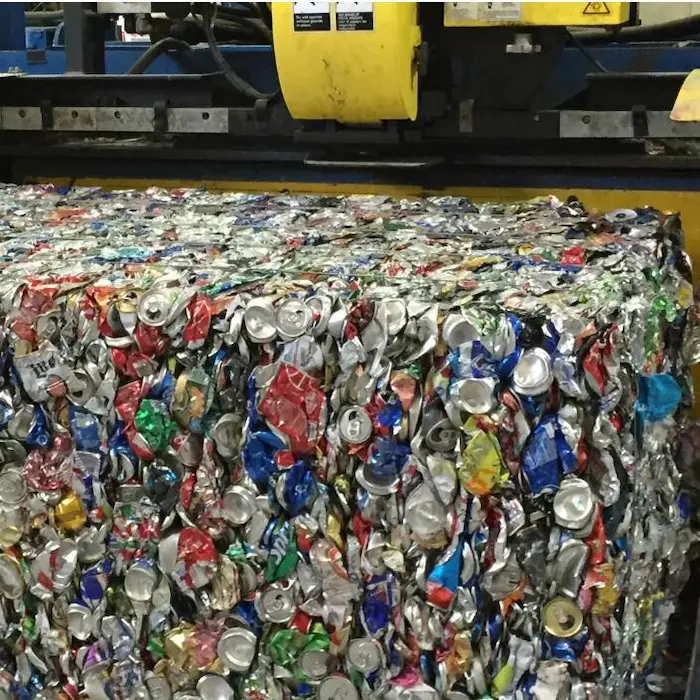
Steel is a valuable resource that makes up around eight percent of the earth’s total resources. Although it is abundant, its supply is limited because we cannot create it artificially. Once the natural sources of steel are used up, we will have to rely on recycling to meet our needs.
Recycling steel is much easier than mining it, and this is one of the major advantages of the recycling process. Steel can be recycled repeatedly without losing its quality or usefulness. To give you an idea, even today, 75 percent of all the tin cans and tin boxes ever made are still being used. According to the Metal Association, in 2012, 67 percent of cans were recycled, and a remarkable 90 percent of the tin and aluminum used in car parts and buildings comes from recycling.
2. Decreases Industrial Pollution
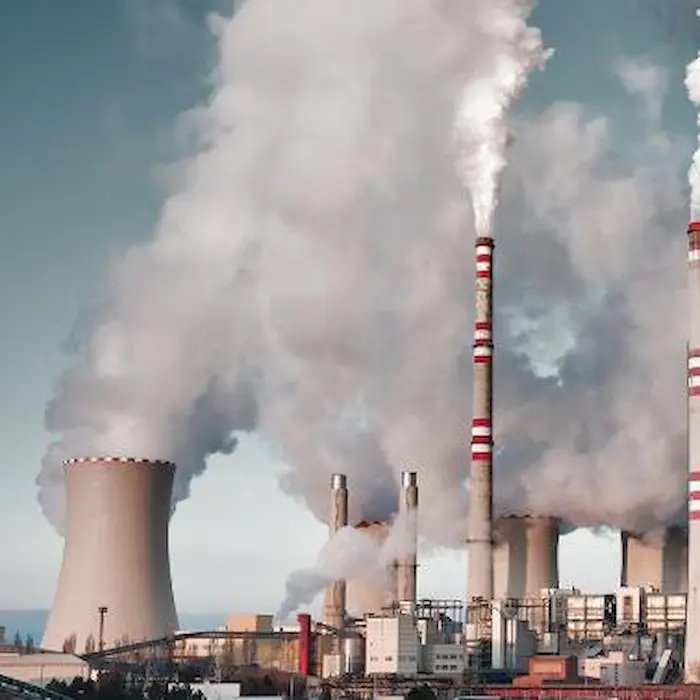
Recycling tin has two important benefits: reducing the need for mining and preventing pollution. Mining for raw tin disturbs the land and causes air and water pollution. Strip mines expose layers of the earth and leave behind hazardous waste. Wind can spread these particles into the air. Growing plants on mining waste helps prevent erosion and reduces pollution. The polluted water from mining sites can contaminate rivers and groundwater, making it costly and limited for irrigation and drinking. Recycling tin helps minimize these environmental problems.
3. Saving Electricity
After mining, bauxite is taken to a smelting plant where it requires a lot of electricity to separate the steel. Steel is stable, so it takes high heat and energy to break its bonds. Smelters often have their own power plants because they need more electricity than the local supply can handle. For example, Rio Tinto, a major steel producer, owns 11 power plants to meet their operational needs.
4. Reducing the Heat-loving Gases in the Atmosphere
Recycling tin helps reduce greenhouse gas emissions, which is really good for the environment in the long run. When tin is smelted, power plants use coal or natural gas to make electricity, and both of these produce carbon dioxide, which contributes to global warming.
Smelting tin also releases a harmful gas called perfluorocarbon, which is much worse for the atmosphere than carbon dioxide. Not only do these power plants emit harmful gases, but they also waste a lot of fuel. For example, gas power plants wasted 57% of the gas they used to produce electricity in 2014, and coal-fired power plants wasted 67%. This waste from natural gas goes up the smokestacks as gases and coal-fired power plants produce both solid waste and gases that harm the environment.
5. Reduces Solid Waste
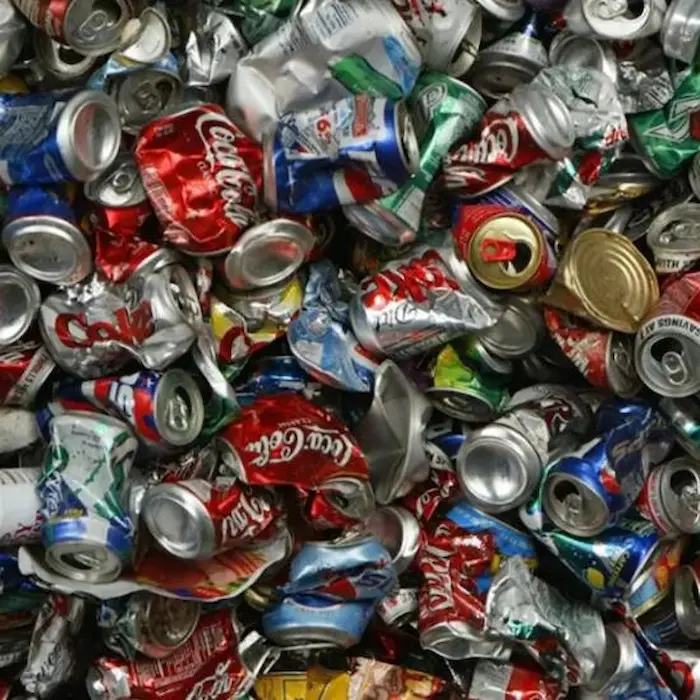
Tin cans thrown away in a landfill don’t break down, even after many years. These cans are considered waste and take up a significant amount of space in landfills.
When we recycle tin cans and boxes, we reduce the amount of space taken up by them in landfills. This, in turn, leaves more room for materials that can decompose naturally. Recycling tin cans is a closed system, meaning it doesn’t create any additional waste.
Limitations of Recycling Tin: The Cost of Recycling
While the recycling of tins is very beneficial to the environment, industry, and the economy, there are a few drawbacks. Here are some of them:
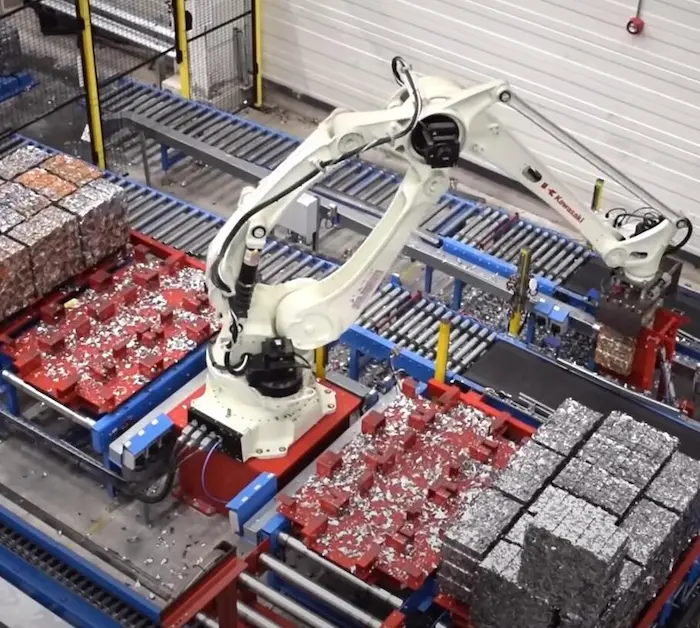
The Cost of Recycling
Recycling tin cans can be costly due to various factors. It involves collecting and sorting the cans, transporting them to recycling facilities, and processing them through cleaning, shredding, and melting. The initial investment in recycling infrastructure is also significant. Market demand for recycled tin and the presence of contaminants can affect costs. Despite the expenses, recycling tin cans is beneficial for the environment. Advancements in technology and increased participation can make recycling more cost-effective in the future.
How Tin Cans and Tin Boxes Are Recycled
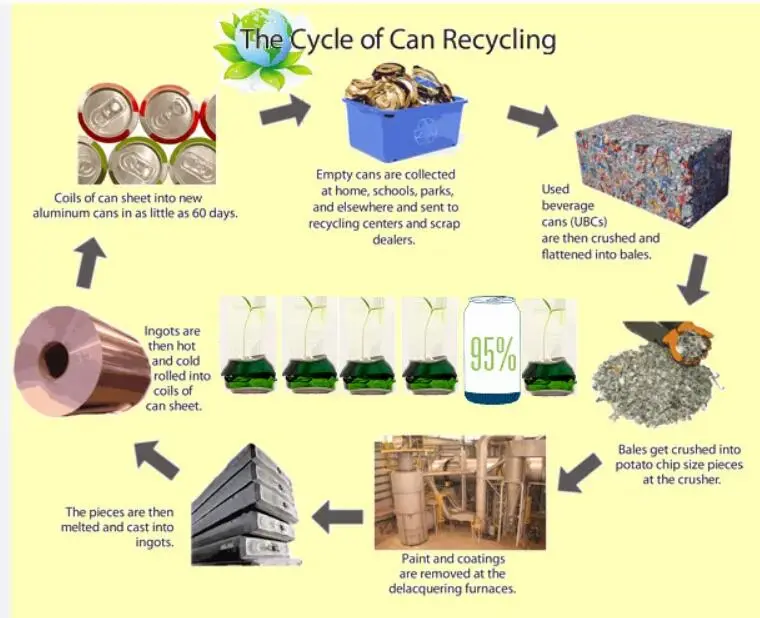
Tin cans and tin boxes undergo a specific recycling process to be reused and transformed into new products. Here is a simplified explanation of how tin cans and tin boxes are recycled:
1. Collection: Tin cans and tin boxes are collected through various channels, including curbside recycling programs, drop-off centers, and recycling bins.
2. Sorting: Once collected, the tin cans and tin boxes are sorted based on their material type. This is typically done using automated sorting machines or manual sorting by trained personnel.
3. Cleaning and Preparation: The sorted tin cans and tin boxes go through a cleaning process to remove any remaining contents or contaminants. Labels and coatings are also removed.
4. Shredding and Melting: After cleaning, the cans and boxes are shredded into smaller pieces. These shredded pieces are then heated in a furnace to melt the metal, which removes any impurities.
5. Refining: The melted metal is further refined to eliminate any remaining impurities and ensure the purity of the tin. This is typically done through processes like electrolysis or other refining techniques.
6. Forming into New Products: The refined tin is then cooled and shaped into new products. It can be used to make a variety of items such as new tin cans, tin containers, or other metal products.
7. Distribution and Sale: The recycled tin products are distributed to manufacturers or other industries that use them as raw materials in their production processes.
FAQ:
Aluminum and tin cans are different in a few ways. Tin cans are magnetic, while aluminum cans are not. Aluminum cans are commonly used for beverages, while tin cans are often used for food. When recycled, aluminum cans are more valuable, but tin can be used in a wider range of products, like buildings and cars.
Yes, scrap metal recyclers do buy tin cans and tin boxes. However, they usually purchase metal in large quantities and pay based on weight (ton). So, unless you have a massive number of cans, it’s unlikely that the amount you’ll receive for recycling will cover the cost of your gas money to transport them.
Tin has a very high recycling rate of over 88%. It can be recycled into any tin product, and there is no loss of quality. Recycling tin cans is essential because metal is limited in supply. About two-thirds of new tin comes from recycled steel, while one-third still comes from new materials.






